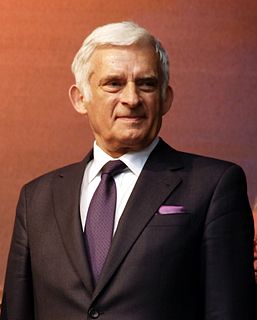A Quote by Judy Woodruff
I think that, from Vaclav Havel own experience, he knew if we all paid attention to what was going on, the chances were that even the most horrible dictators wouldn't execute people.
Related Quotes
When I was in high school in the early 1970s, we knew we were running out of oil; we knew that easy sources were being capped; we knew that diversifying would be much better; we knew that there were terrible dictators and horrible governments that we were enriching who hated us. We knew all that and we did really nothing.
Vaclav Havel was a really popular leader. He couldn't believe that he was really there. I mean, he still dressed in black T-shirts and jeans and was very kind of '60s. And he began to realize the seriousness of it. And he knew how to strategize. And he had a very keen political sense, but he didn't want to be like the old communist leaders.
If I were just curious, it would be very hard to say to someone, I want to come to your house and have you talk to me and tell me the story of your life. I mean people are going to say, You're crazy. Plus they're going to keep mighty guarded. But the camera is a kind of license. A lot of people, they want to be paid that much attention and that's a reasonable kind of attention to be paid.
I knew that Vaclav Havel didn't want to look into people's eyes, because he said that, when he was being interrogated during the communist period and had been taken to jail, that, if you look directly into somebody's eyes, they can persuade you. And so you can see that so clearly in this interview, where he's looking down.And I kept saying to him as we kept coming - came over here: " You have to look up."And I clearly had no influence on him.
I think of myself as living so much outside borders or old categories that I choose as my leaders U2, the Dalai Lama, Vaclav Havel, Sigur Ros, Desmond Tutu, Barack Obama, and the girl next door. By definition, in short, my leaders are the ones who think in terms larger, and more intimate, than any country.
























